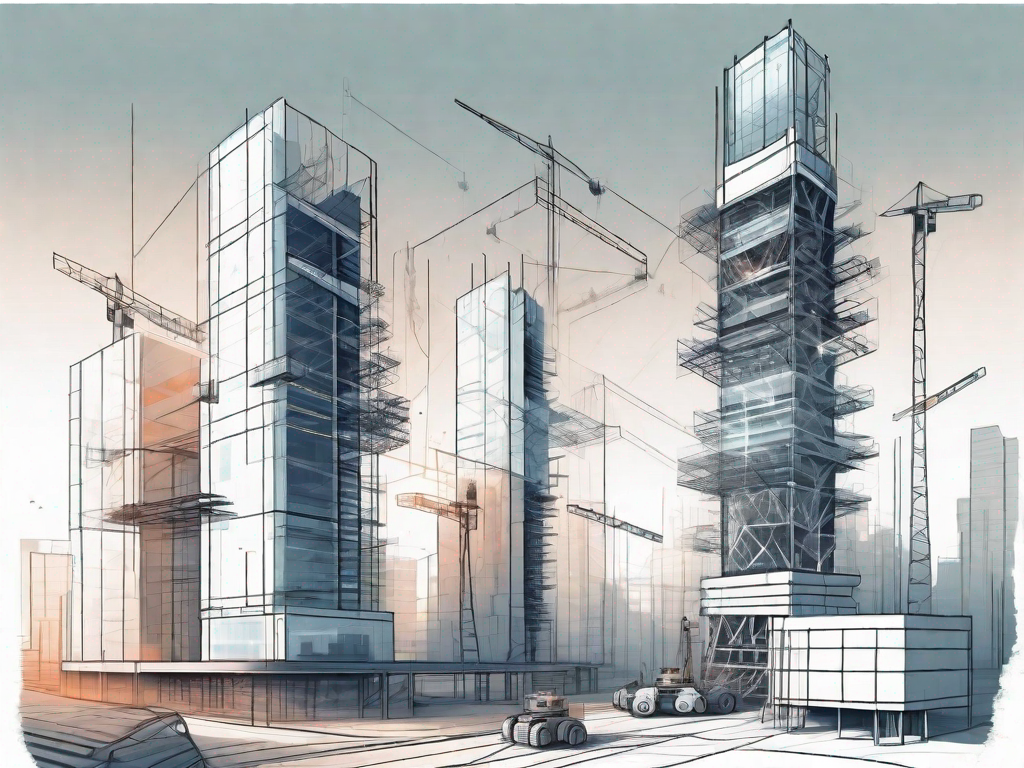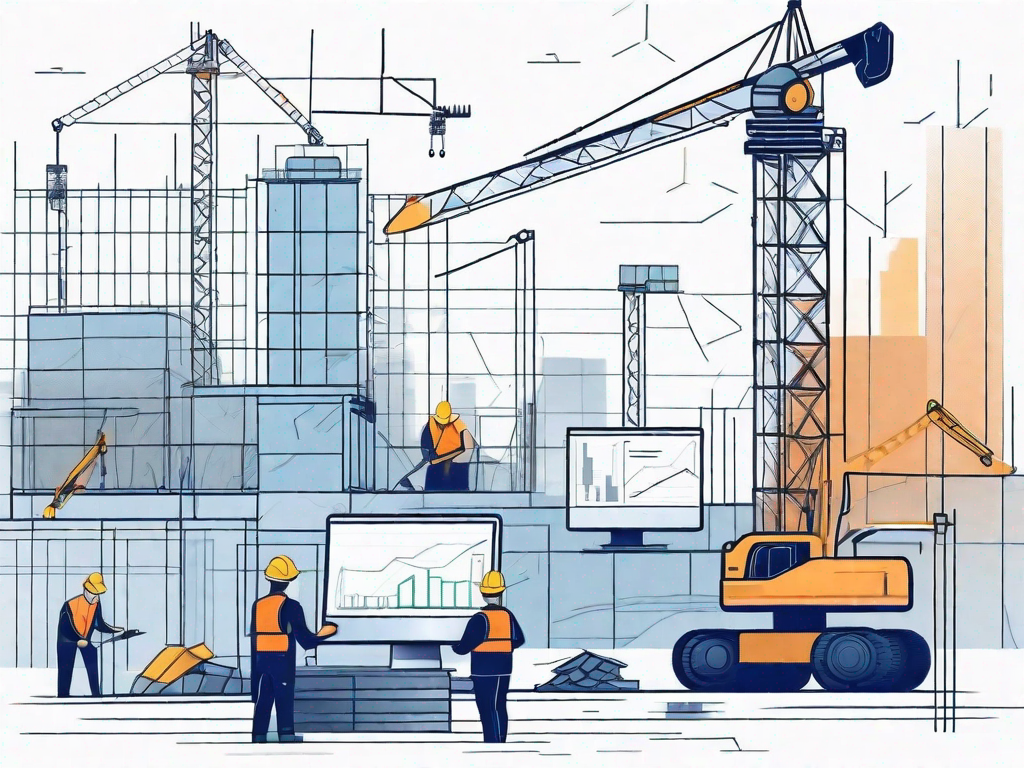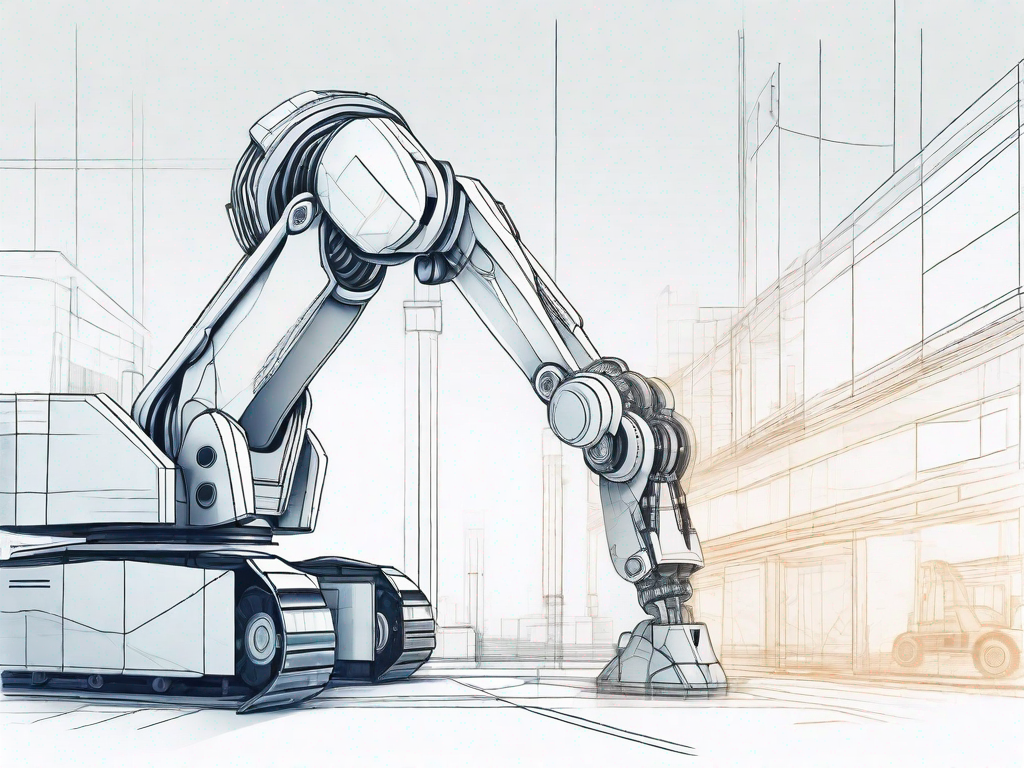Tracking Time with Tech: The AI Push in Construction Scheduling
Construction scheduling is a crucial aspect of project management in the construction industry. Efficient scheduling is essential for ensuring that projects are completed on time and within budget. In recent years, there has been a growing interest in leveraging artificial intelligence (AI) technology to improve construction scheduling processes. This article explores the importance of efficient construction scheduling and how AI can revolutionize the way projects are planned and executed.
1. The Importance of Efficient Construction Scheduling
Efficient construction scheduling is the backbone of successful project management. It involves creating a timeline and allocating resources to ensure that all tasks are completed in a logical and timely manner. Proper scheduling can have a significant impact on project timelines and budgets, ultimately leading to increased productivity and profitability.
However, traditional construction scheduling methods often face various challenges. The complexity of construction projects, combined with factors such as weather conditions, material availability, and labor resources, can make it difficult to create accurate and effective schedules. This is where AI comes into play, offering a potential solution to these challenges.
How proper scheduling can impact project timelines and budgets
Efficient construction scheduling plays a vital role in keeping projects on track and within budget. By carefully planning and organizing tasks, project managers can minimize delays, reduce downtime, and optimize resource allocation. This can lead to shorter construction timelines and more predictable project costs.
For example, when tasks are properly scheduled, dependencies and constraints are taken into account, ensuring that each task can be completed without unnecessary delays. This level of coordination prevents bottlenecks and maximizes the efficient use of resources, ultimately saving time and money.
Traditional challenges in construction scheduling
Traditional construction scheduling methods often rely on manual input, which can be time-consuming and prone to errors. This can result in inaccurate project timelines, leading to delays and cost overruns. Additionally, traditional methods may not adequately consider external factors that can impact construction schedules, such as weather conditions or unforeseen events.
Furthermore, traditional methods can be inflexible when it comes to making adjustments or accommodating changes during the construction process. This lack of adaptability can further contribute to delays and inefficiencies.
What is AI and how does it apply to construction scheduling?
Artificial intelligence refers to the development of computer systems capable of performing tasks that would typically require human intelligence. AI-powered technology can analyze data, make predictions, and learn from patterns to make informed decisions. In the context of construction scheduling, AI can analyze vast amounts of data to optimize project timelines, identify risks, and enhance resource allocation.
The application of AI in construction scheduling involves the use of algorithms and machine learning techniques to automate and improve the scheduling process. By integrating AI technology into scheduling software, project managers can benefit from more accurate project predictions, proactive risk management, and enhanced decision-making capabilities.
Benefits of using AI in construction scheduling
The adoption of AI technology in construction scheduling offers several benefits. Firstly, AI-powered scheduling tools can significantly improve the accuracy of project timelines. By analyzing historical data, current project status, and external factors, AI algorithms can generate more reliable and realistic schedules, accounting for potential delays and risks.
Addititionally, AI can streamline processes and reduce human error in construction scheduling. Manual scheduling processes are prone to mistakes, such as incorrect data entry or missed dependencies. By automating these processes with AI, project managers can minimize human error and ensure more reliable scheduling results.
Furthermore, AI enables real-time monitoring of construction progress. By integrating AI systems with sensor-based technologies and IoT devices, project managers can obtain accurate, up-to-date information on project status, enabling them to make timely adjustments and respond proactively to any deviations from the planned schedule.
Overview of AI-powered software and applications
There are various AI-powered software and applications available for construction scheduling. These tools leverage advanced algorithms and machine learning techniques to optimize project timelines, allocate resources, and generate accurate schedules. Some software even offers additional features like risk analysis, cost estimation, and collaboration capabilities.
By using AI-driven scheduling tools, project managers can streamline the scheduling process, improve accuracy, and enhance communication among team members. These tools can automate repetitive tasks, such as data analysis and schedule creation, allowing project managers to focus on higher-level decision-making and strategic planning.
Features and capabilities of AI-driven scheduling tools
AI-driven scheduling tools come with a range of features and capabilities designed to enhance construction scheduling. These tools can analyze historical project data to identify patterns and optimize project timelines. They can also consider external factors, such as weather conditions or material availability, to generate schedules that account for potential delays and risks.
Additionally, AI-driven scheduling tools can provide real-time monitoring of project progress. By integrating with IoT devices and sensor-based technologies, these tools can capture and analyze data in real-time, enabling project managers to make data-driven decisions and proactively address any deviations from the planned schedule.
How AI improves accuracy in project scheduling
One of the significant advantages of using AI in construction scheduling is its ability to improve accuracy. By analyzing vast amounts of project data, AI algorithms can identify patterns, dependencies, and potential risks that may impact project timelines. This enables project managers to create more realistic schedules that consider various factors and variables.
AI-powered scheduling tools can also continuously learn and adapt as new data becomes available. By leveraging machine learning, these tools can make increasingly accurate predictions and recommendations, ensuring that schedules are continually updated and optimized throughout the construction process.
Streamlining processes and reducing human error with AI
Another benefit of implementing AI in construction scheduling is the streamlining of processes and reduction of human error. Traditional manual scheduling methods are prone to human mistakes, which can lead to inaccurate schedules and delays. By automating scheduling processes with AI technology, project managers can minimize human error and ensure more reliable scheduling results.
AI-powered tools can also help project managers handle large volumes of data more efficiently. Instead of manually analyzing and processing data, AI algorithms can quickly analyze vast datasets, identifying trends, and generating insights in a fraction of the time it would take a human. This allows project managers to make better-informed decisions and allocate resources effectively.
Utilizing AI for real-time monitoring of construction progress
Real-time monitoring of construction progress is essential for identifying potential issues or delays and making timely adjustments to keep the project on track. AI technology, when integrated with sensor-based devices and IoT systems, can provide real-time project data, allowing project managers to monitor progress, identify bottlenecks, and make informed decisions.
For example, AI-powered systems can collect data from various sources, such as equipment sensors, material inventory systems, and worker productivity trackers. By analyzing this data in real-time, project managers can detect potential delays, resource shortages, or quality issues and take corrective actions before they escalate.
Predictive analytics and its role in proactive scheduling adjustments
Predictive analytics, a subset of AI, plays a crucial role in proactive scheduling adjustments. By using historical project data and real-time monitoring, AI algorithms can predict future outcomes and risks, enabling project managers to make proactive decisions and adjust schedules accordingly.
For instance, predictive analytics can help identify potential delays based on historical patterns or predict resource shortages based on current project progress. By having this foresight, project managers can take preemptive measures, such as allocating additional resources or adjusting task priorities, to prevent delays or disruptions.
Examples of companies using AI for construction scheduling
Several companies have already started leveraging AI technology to optimize construction scheduling processes. For example, XYZ Construction uses an AI-driven scheduling tool that considers various factors, including weather conditions, worker availability, and project scope, to create realistic schedules and optimize resource allocation.
Another notable example is ABC Builders, which uses AI-powered software to continuously analyze project data and detect potential risks or delays. This enables the project team to make data-driven decisions and proactively address issues before they impact the project schedule.
Measurable benefits and outcomes from AI implementation
Companies that have implemented AI technology in construction scheduling have reported several measurable benefits. These include improved project predictability and reliability, reduced delays and cost overruns, optimized resource allocation, and enhanced decision-making capabilities.
For instance, XYZ Construction has seen a 25% reduction in project delays since implementing their AI-driven scheduling tool. By creating more accurate schedules and optimizing resource allocation, they have been able to complete projects more efficiently and within budget.
Additionally, companies have reported increased productivity and improved communication among team members. AI-powered scheduling tools can automate repetitive tasks and provide real-time project data, allowing project teams to collaborate more effectively and make informed decisions.
Potential obstacles and limitations of AI adoption
While the adoption of AI in construction scheduling presents numerous benefits, there are also potential obstacles and limitations to consider. One of the main challenges is data quality and availability. AI algorithms rely on high-quality and relevant data to generate accurate predictions and recommendations. If the data used is incomplete, outdated, or of poor quality, it can impact the effectiveness of the AI-powered scheduling tools.
Furthermore, AI technology in construction scheduling is still relatively new and evolving. This means that companies may encounter resistance or skepticism from stakeholders who are unfamiliar with AI or skeptical about its capabilities. Addressing these concerns and ensuring proper training and implementation are essential for successful adoption.
Strategies for mitigating risks and maximizing AI benefits
To mitigate risks and maximize the benefits of AI adoption in construction scheduling, companies can employ several strategies. Firstly, ensuring data quality is crucial. Companies should invest in data management processes to ensure that data used in AI algorithms is accurate, complete, and relevant.
Secondly, companies should involve stakeholders early in the process and provide training and education on the benefits of AI technology. By addressing any concerns or misconceptions, companies can foster a culture of acceptance and support for AI adoption.
Moreover, companies can start with pilot projects to test the effectiveness of AI-powered scheduling tools before implementing them on a larger scale. This allows companies to refine processes, address challenges, and demonstrate the tangible benefits of AI technology.
Emerging trends and advancements in AI technology
AI technology in construction scheduling is rapidly evolving, with new trends and advancements emerging. One significant trend is the integration of AI with other emerging technologies, such as robotics and drones. This offers the potential for increased automation and efficiency in construction project management.
Another trend is the use of predictive analytics and machine learning to optimize resource allocation and improve risk management. By continuously analyzing data and learning from patterns, AI algorithms can generate more accurate predictions, allowing project managers to make proactive decisions and minimize delays.
Predictions for the future of construction scheduling with AI
The future of construction scheduling with AI looks promising. As technology continues to advance, AI-powered scheduling tools will become more sophisticated and capable of handling complex projects. The integration of AI with other emerging technologies, such as IoT and robotics, will further enhance the efficiency and productivity of construction projects.
Moreover, as more companies adopt AI technology, the availability and quality of data will improve, leading to even more accurate and reliable AI predictions. This, in turn, will result in more efficient resource allocation, reduced delays, and optimized project timelines.
Recap of the benefits and potential of AI in construction scheduling
In summary, AI has the potential to revolutionize construction scheduling processes. By leveraging AI-powered tools, project managers can create more accurate and realistic project timelines, optimize resource allocation, and proactively address potential delays and risks.
AI technology offers numerous benefits, including improved accuracy in project scheduling, streamlined processes, and real-time monitoring of project progress. Companies that embrace AI in construction scheduling can expect to see increased productivity, reduced delays, and enhanced decision-making capabilities.
Final thoughts on the role of technology in optimizing construction timelines
Technology, especially AI, has a crucial role to play in optimizing construction timelines. By harnessing the power of AI-powered scheduling tools, companies can overcome traditional challenges, improve accuracy, and streamline processes. The adoption of AI technology in construction scheduling is an investment in the future, driving increased efficiency, productivity, and profitability in the construction industry.





